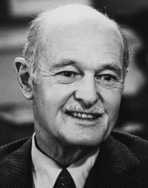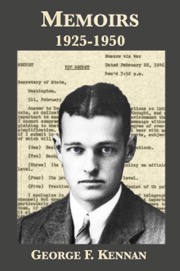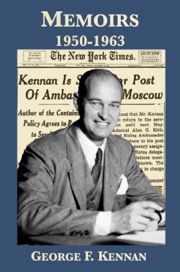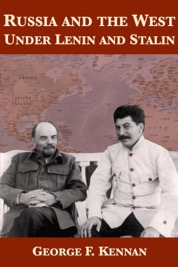
Interned briefly by the Nazis at the outbreak of World War II, Kennan was released in 1942 and subsequently filled diplomatic posts in Lisbon and Moscow during the war. Kennan's “Long Telegram,” sent from Moscow in February 1946, enunciated the “containment” policy; it was widely read in Washington and brought Kennan much recognition. He returned to the United States, and in 1947 Secretary of State George C. Marshall asked Kennan to create the State Department’s Policy Planning Staff, of which he became the first director. He played a key role in drafting what would be known as the “Marshall Plan” for the reconstruction of Europe. Kennan clarified his views on containment in a highly influential article, signed “X,” published in Foreign Affairs in July 1947: in it, Kennan questioned the wisdom of the United States’ attempts to appease the Soviet Union and advocated US counterpressure wherever the Soviets threatened to expand. This view subsequently became the core of US policy toward the Soviet Union.
Kennan became counselor to the State Department in 1949, but resigned in 1950 to join the Institute for Advanced Study at Princeton. He returned to Moscow in 1952 as US ambassador but came back to the US in 1953 after the Russians declared him persona non grata for remarks he made about Soviet treatment of Western diplomats. In 1956 he became permanent professor of historical studies at the Institute in Princeton, a tenure broken only by a stint as US ambassador to Yugoslavia (1961-63). In the late 1950s Kennan revised his containment views, advocating instead a program of US “disengagement” from areas of conflict with the Soviet Union. He later emphatically denied that containment was relevant to other situations in other parts of the world such as Vietnam.
Kennan won simultaneous Pulitzer Prizes and National Book Awards for Russia Leaves the War (1956) and Memoirs, 1925-1950 (1967). Other autobiographies include Memoirs, 1950-1963 (1972), Sketches from a Life (1989), and At a Century’s Ending: Reflections, 1982-1995 (1996). In addition to numerous honors, including honorary degrees from Oxford, Harvard, Yale and Princeton and the Albert Einstein Peace Prize in 1981, Kennan was awarded the Presidential Medal of Freedom in 1989.
Click on each cover for details about each eBook:






